Frank Dikötter, author of the "People's Trilogy" about China under of Mao Zedong, has been chair professor of humanities at the University of Hong Kong since 2006. He recently published "China After Mao," in which he argues that claims that the Chinese Communist Party has significantly changed direction in the post-Mao era are a misreading by those outside the country who "live in a fantasy world."
He told RFA Mandarin in a recent interview that Chinese leaders have been very consistent in their messaging on political reform, and their economic goals and determination to maintain their dictatorship at all costs. The interview has been edited for length and clarity.
RFA: What is the difference between the Mao era and the post-Mao era?
Dikötter: So, what have [Chinese leaders] been telling us? A very simple story: China is in the process of "reform and opening up." So, there will be economic progress, and with economic change there will be political progress. China will become first a capitalist country and then a democracy.
Of course, what has happened is the exact opposite. If you read the documentation carefully, you find out that never at any one point did Deng Xiaoping, Hu Yaobang, Zhao Ziyang, Jiang Zemin, all the way up to today, never did a single leader ever say, “We want a capitalist system.” They all said the exact opposite, that they would uphold the socialist road. It is in the Constitution.
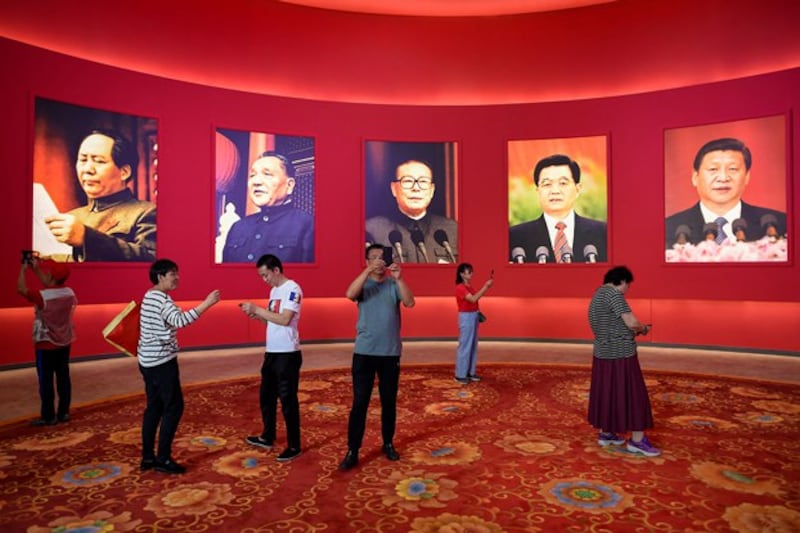
All along, they were very clear about what they wanted. They wanted to reinforce the socialist economy. So what is a socialist economy? [It's] not necessarily something that you have under Mao. A socialist economy is one where the state has or controls the means of production.
Money, labor, fertilizer, energy, transportation, all these are the means of production. They all belonged to the state. Today the money belongs to state banks. The land belongs to the state. Energy is controlled by the state. Large enterprises are controlled by the state. That was their goal, and they achieved it.
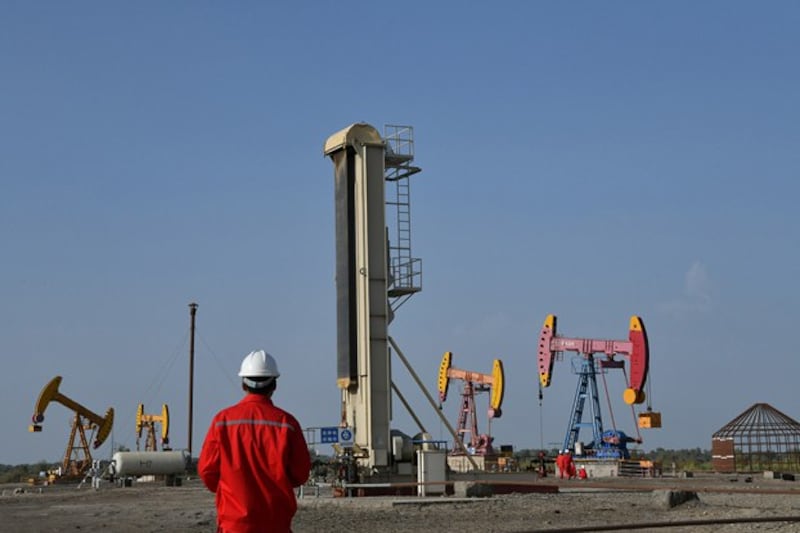
The second point is democratization. At no point did anyone say they wanted to have a separation of powers. On the contrary, Zhao Ziyang said very clearly back in 1987 that China would never have the separation of powers. Xi Jinping also made that very clear. But nobody in the West heard them, because they didn't want to hear it.
RFA: Has everyone misjudged the Chinese Communist Party?
Dikötter: There is a profound failure on the part of a great many people, politicians, experts and scholars outside China to simply listen to what all of these leaders said very clearly and also to read and understand what’s been happening. The failure is reasonably straightforward. It is a refusal to believe that a communist — a Chinese communist — is a communist.
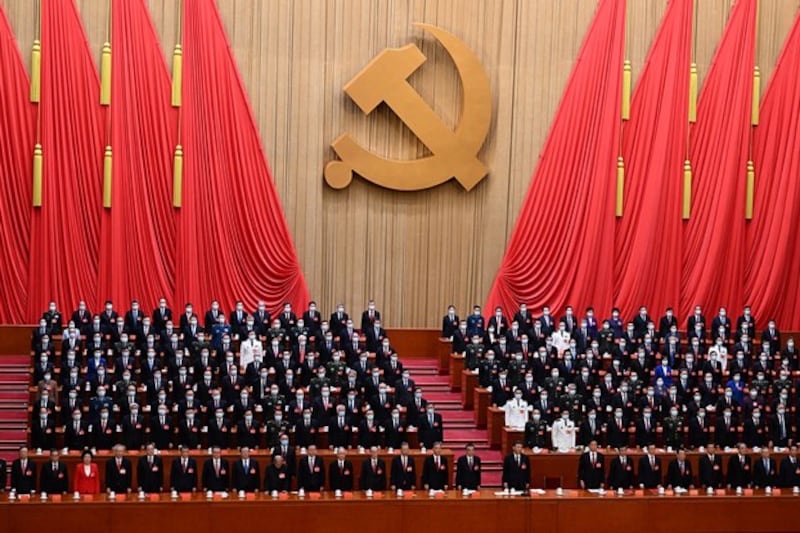
The truth is that the origins of the People's Republic of China are not in the Tang Dynasty, not in the Song Dynasty, not in the Ming or the Qing. They are in 1917, when Vladimir Lenin seizes power and establishes a communist system. That is what inspired China after 1949.
That was the system behind it. So, if you do not understand that China is communist, if you keep on saying it's not really communist, that they pretend to be communist, you will never understand anything.
RFA: Will China ever have a true democracy?
Dikötter: In the People's Republic, you have a dictatorship, but they call themselves a democracy. They have no elections, but they say they have free elections. So what is an election in the People's Republic? If you vote for the person they tell you to vote for. They give you a list one, two, three names. You can you can pick one of these three. That's it. That's an election.
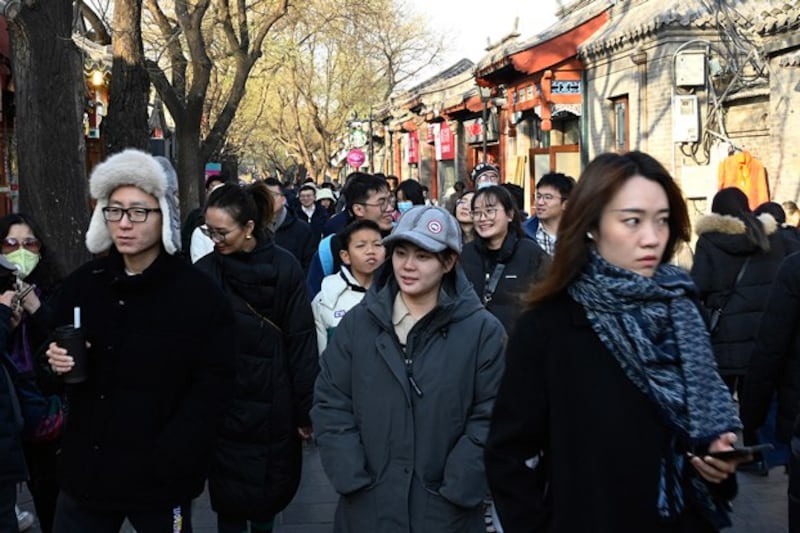
RFA: You devote an entire chapter in your book to the Tiananmen Square massacre in 1989, but you don't go into the rights and wrongs of it. Why not?
Dikötter: The Tiananmen massacre is ... the most important moment after 1976. The 200 Chinese tanks that entered Beijing in June 1989 crushed Chinese people. That's really quite extraordinary. It’s important because it shows that the party had an iron determination to retain its monopoly on power.
RFA: Do you believe that the Chinese people want democracy?
Dikötter: Nobody knows what people in China want, for a very simple reason — they can't vote. … If you do not have freedom of expression, if you cannot express your opinion at the ballot box, then we simply don't know. You don't know what people think in a dictatorship.
But it's probably safe to assume that a system based on the separation of powers, including freedom of the press and a solid judicial system, would probably be beneficial, for instance, for the economy. … This is basically a modern economic model based on debt. You spend to create the illusion of growth. Then you spend more. My feeling is that there may be people in the People's Republic of China who are probably thinking about whether this is really a successful system or not. That's all we can say.
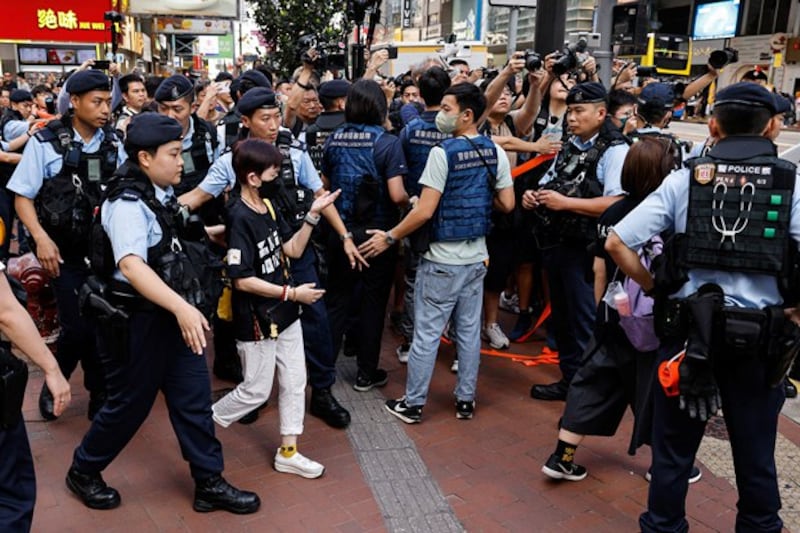
RFA: Did China choose to destroy Hong Kong because it couldn't control Hong Kong, or was it to transform Hong Kong’s system from the Western model to the Chinese model?
Dikötter: [Chinese leaders] believe that politics and the economy can be separated, and you have to give them a little bit of credit. They believe, with some justification, that the economy of China has been transformed beyond recognition over the last 40 years. Many parts of the world have been transformed beyond recognition, and none of them have all the structural problems that the People's Republic of China has today.
But nonetheless, they're quite convinced that you can have a Leninist system of monopoly over power, a Marxist system which controls the banks, controls the prices of energy, controls most state enterprises, controls the land, and yet have economic growth. That is what they believe. So why should Hong Kong be any different?
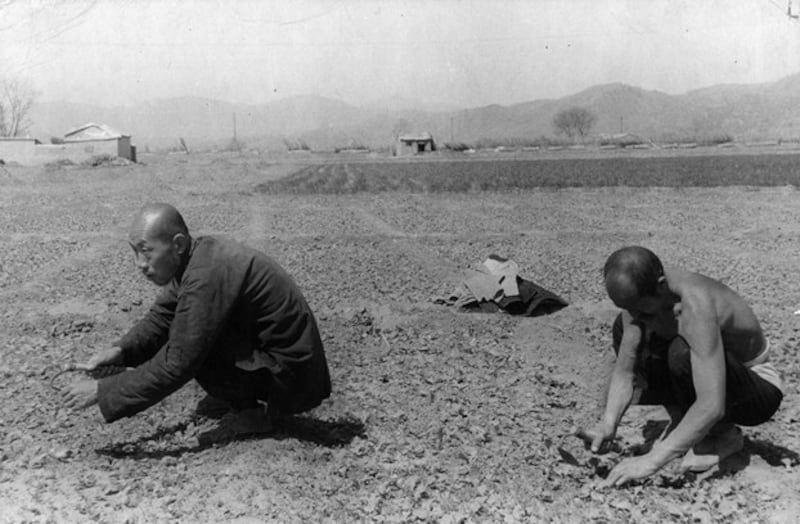
RFA: Why is the United States regarded as the enemy, and how does that relate to the concept of "peaceful evolution?"
Dikötter: The United States has always been perceived as the enemy from 1949 onwards because the U.S. is the heart of the capitalist system — the capitalist imperialist system — and the capitalist system is opposed to the socialist system.
What is peaceful evolution? It's a notion that goes back to former U.S. Secretary of State John Foster Dulles who came up with it. He said we should help countries like Poland and Hungary economically by investing so they would evolve peacefully into a democracy. This is exactly what happens with Poland on June 4, 1989, when the people voted themselves out of communism, and effectively and peacefully evolved into a democracy.
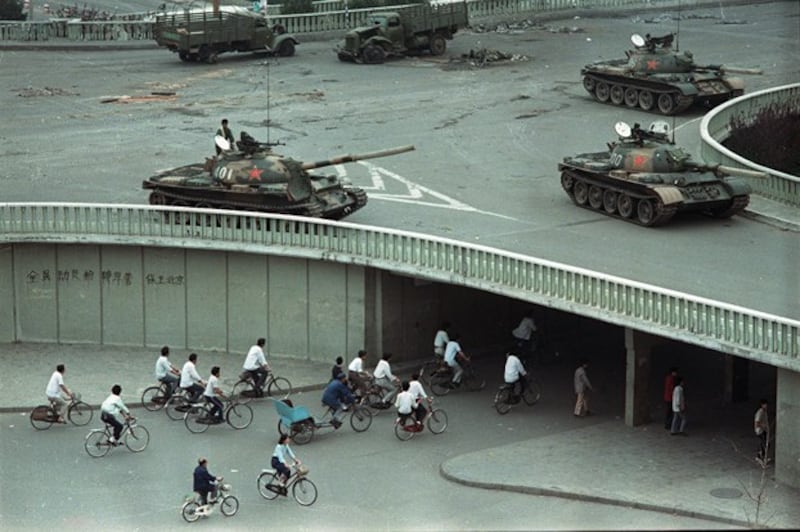
It is not just a notion, it's a reality. And that is the biggest fear of the leaders in Beijing — that they will follow the example of Poland, not that of the former Soviet Union — and collapse. They afraid of what will happen with all these investments from capitalist countries, all these foreign ideas, Mickey Mouse T-shirts, Winnie the Pooh — that it will change the whole system.
RFA: You mention in your book that Mao Zedong’s belief that the United States would collapse was his biggest misjudgment. Does that misjudgment continue to this day?
Dikötter: Mao, in the last years of his life, and Deng Xiaoping, saw the United States pull out of the Vietnam War. At that moment, they thought the big enemy was no longer the United States, which was on the decline. The Soviet Union was the big enemy. What is this philosophy based on? It is based on Marxism. Marxism announces the imminent collapse of capitalism. We're still waiting, right? But if you are a committed Marxist, you keep on thinking that the capitalist system is collapsing.
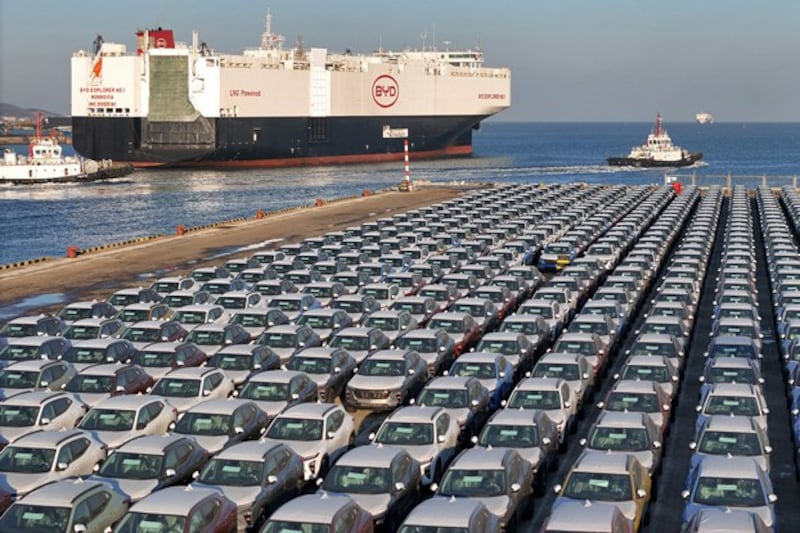
In the 1970s, Deng Xiaoping sent missions to Japan and the United States. When they came back, the conclusion was that the U.S. economy was terrible with lots of unemployment and big debt. “They need us. They are about to collapse. This is a great opportunity for us.” — this was what [Chinese leaders] said when they were pretty much unable to feed their own people in the 1970s.
The same story has repeated itself. The biggest moment was in 2008 with the global financial crisis. At that moment in Beijing thought, “This is it. This is the collapse of the capitalist system. Our social system is superior.” So, they went around the world in 2009 and 2010, talking about "the China way," that "our socialist system is superior to the capitalist system."
RFA: Is Chinese President Xi Jinping a follower of all the other Chinese leaders who came before him?
Dikötter: The difference is Xi Jinping has what others didn't have. He's got much greater clout. Xi Jinping ... merely says what all his predecessors have said very consistently since 1949. He is no different from any of his predecessors. He's not a creator; he's a follower. In fact, he's created very little. If you want me to come up with a creator who created the most, it’s Jiang Zemin who came up with the idea of "going out" and establishing factories abroad, not just inside China. He emphasized the importance of Xinjiang as a strategic region. Jiang Zemin is the one who inserted party committees inside private enterprises. He is the one who emphasized from the summer of 1989 onwards, the great threat posed to China by peaceful evolution.
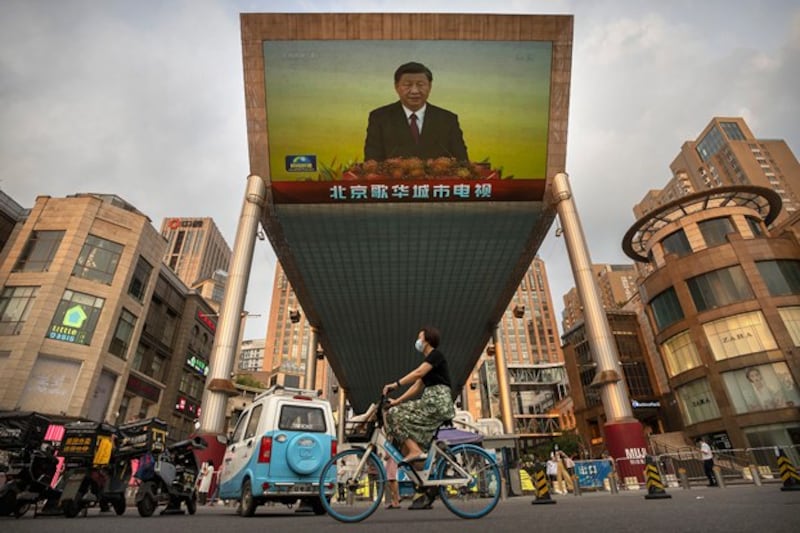
Xi Jinping has faithfully followed all the measures introduced by Jiang Zemin. It is not Xi Jinping who introduced party committees into private enterprises. It was Jiang Zemin. It's not Xi Jinping who clamped down on Western culture. It was Jiang Zemin. Jiang was the one who joined the World Trade Organization, so all of this has been followed quite faithfully.
Translated and transcribed by Luisetta Mudie . Edited by Roseanne Gerin.
